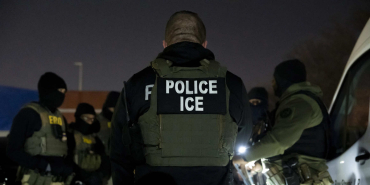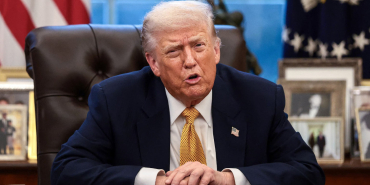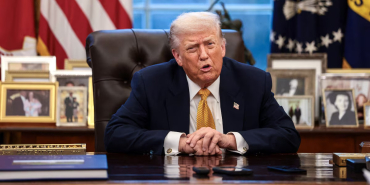Deportation Fears Rise Among Millions of Undocumented Immigrants in USA

Uncertainty looms over America's estimated 13 million undocumented immigrants following Donald Trump's 2024 presidential victory.
This is exemplified by the story of Gabriela, a Bolivian national who has built a life in the United States over two decades. Originally entering the country concealed beneath corn stalks in a smuggler's vehicle, she now maintains steady employment as a housekeeper in Maryland. Trump's campaign platform, centered on promises of widespread deportations, has generated widespread concern throughout immigrant communities across the nation. However, Gabriela maintains a notably composed perspective on the situation. "I'm not scared at all, actually," she reflects, citing her tax compliance and work ethic. "That's for criminals to worry about. I pay taxes, and I work."
She further notes with a degree of confidence, "In any case, I'm undocumented. So, how would they even know about me?"
The president-elect's rhetoric has sparked apprehension about potential workplace enforcement operations, family disruptions, and systematic deportation efforts. While Trump consistently advocated for mass removals during his campaign, characterizing undocumented immigrants as resource burdens and security risks, the specific mechanics of these proposed operations remain undefined. Tom Homan, Trump's newly appointed border tsar and former acting director of Immigration and Customs Enforcement has outlined a strategy prioritizing the removal of individuals deemed to pose public safety threats.
During a Fox News appearance, Homan defended the approach, stating, "We're going to follow through on the mandate the American people gave President Trump. What member of Congress, what governor, or what mayor is against taking public safety threats out of their community?"
While deportations occurred regularly under the Biden administration, with over 1.5 million individuals removed, Trump's proposed approach suggests a more aggressive stance. Analysts anticipate expanded operations beyond border regions, potentially incorporating military assets including National Guard personnel and aircraft for detention and deportation procedures. Trump's running mate JD Vance has suggested initial operations could target up to one million individuals, though detailed plans remain unclear. Interestingly, some undocumented immigrants perceive potential benefits in Trump's presidency, particularly regarding economic prospects.
Some also acknowledge concerns about enforcement activities while remaining optimistic about possible economic improvements. The situation presents particular challenges for mixed-status families. The American Immigration Council reports that over five million US citizens born to undocumented parents could experience significant impacts from stricter enforcement policies. These families must navigate complex circumstances in a nation that has historically provided opportunities for those seeking better lives.














Comments
Bivens vs 6 Unidentified…
Permalink
Bivens vs 6 Unidentified Federal Agents (1972)...
That's the Supreme Court Case Law to know if you are undocumented in United States.
Know that Law....front to back
Add new comment